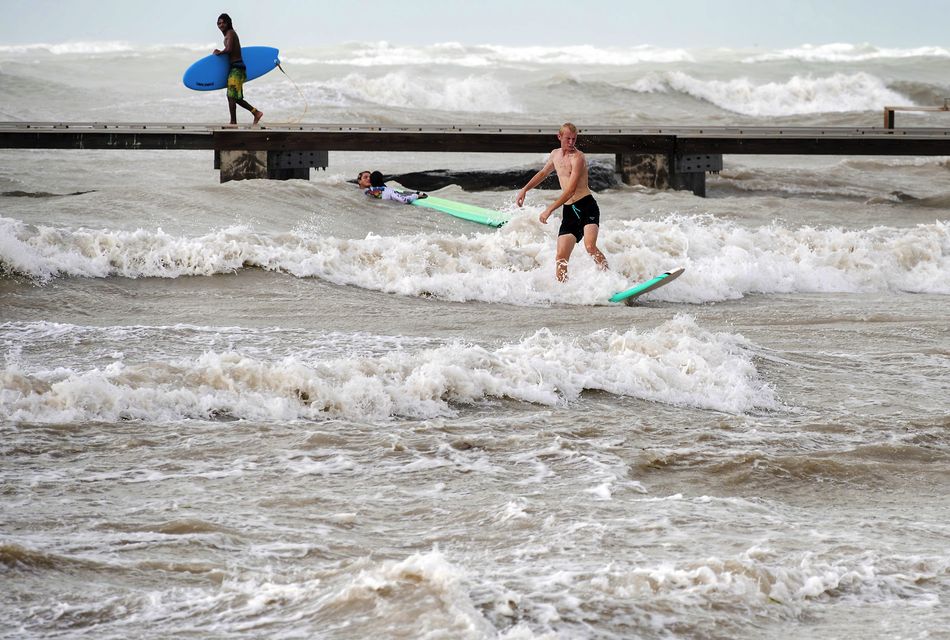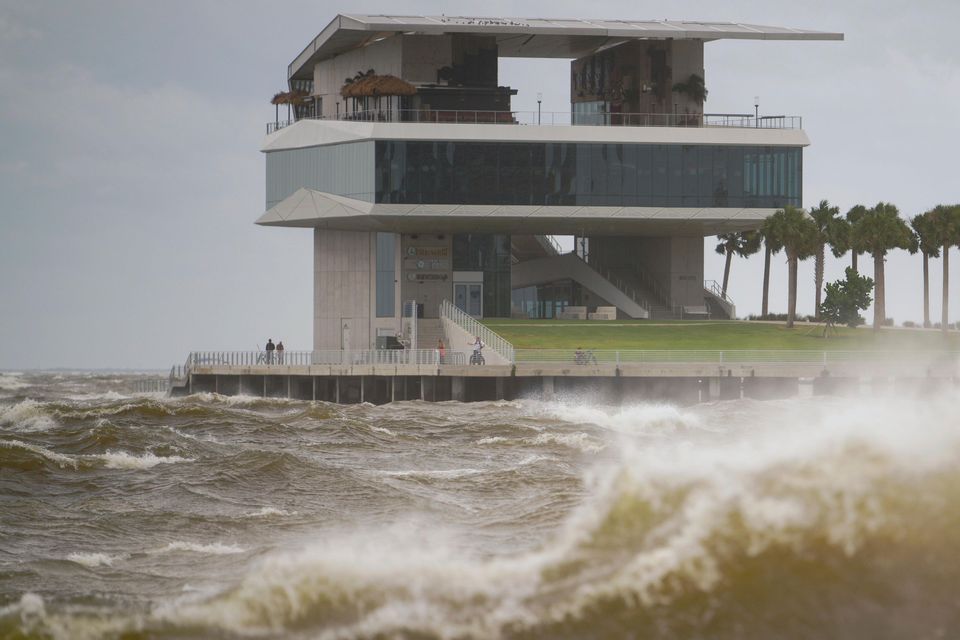Hurricane Helene roared ashore as a powerful Category 4 storm in a sparsely populated region of Florida, peeling the siding from buildings, trapping residents in rising floodwaters and knocking out power to millions of customers.
At least five people were reported dead.
The storm made landfall late on Thursday with maximum sustained winds of 140mph in the rural Big Bend area, home to fishing villages and holiday hideaways where Florida’s Panhandle and peninsula meet.
First responders were out in boats early on Friday to rescue people trapped by flooding in Citrus County, some 120 miles south of Perry.
Nearly four million homes and businesses were without power on Friday morning in Florida, Georgia and South Carolina, according to poweroutage.us, which tracks utility reports.
One person was killed in Florida when a sign fell on their car, and two people were reported killed in a possible tornado in south Georgia as the storm approached.
Trees that toppled on to homes were blamed for deaths in Charlotte, North Carolina, and Anderson County, South Carolina.
Surfers take advantage of heavy winds along Higgs Beach in Key West, Florida (Rob O’Neal/The Key West Citizen via AP)
The hurricane came ashore near the mouth of the Aucilla River on Florida’s Gulf Coast.
That location was only about 20 miles north west of where Hurricane Idalia hit last year at nearly the same ferocity and caused widespread damage.
Soon after it crossed over land, Helene weakened to a tropical storm, with its maximum sustained winds falling to 70mph.
At 5am local time, the storm was about 40 miles east of Macon, Georgia, and about 100 miles south east of Atlanta, moving north at 30mph, the National Hurricane Centre in Miami reported.
Forecasters expected the system to continue weakening as it moves into Tennessee and Kentucky and drops heavy rain over the Appalachian Mountains, with the risk of mudslides and flash flooding.
Forecasters also warned that Storm Isaac had strengthened on Friday into a hurricane in the open waters of the Atlantic Ocean and could cause dangerous waves in parts of Bermuda.
The St Pete Pier in St Petersburg, Florida (Martha Asencio-Rhine/Tampa Bay Times via AP)
The storm was about 980 miles east-northeast of Bermuda and about 1,175 miles west of the Azores, with maximum sustained winds of 75mph.
It was heading east at 12mph.
There were no coastal watches or warnings in effect, but the waves could cause life-threatening surf and rip current conditions in Bermuda, the hurricane centre said.
Potentially dangerous waves could also spread to the Azores, the centre said.
Isaac is expected to strengthen before gradually weakening by the end of the weekend.
The storm has been churning in the ocean as Helene made landfall in northwestern Florida.

